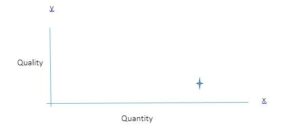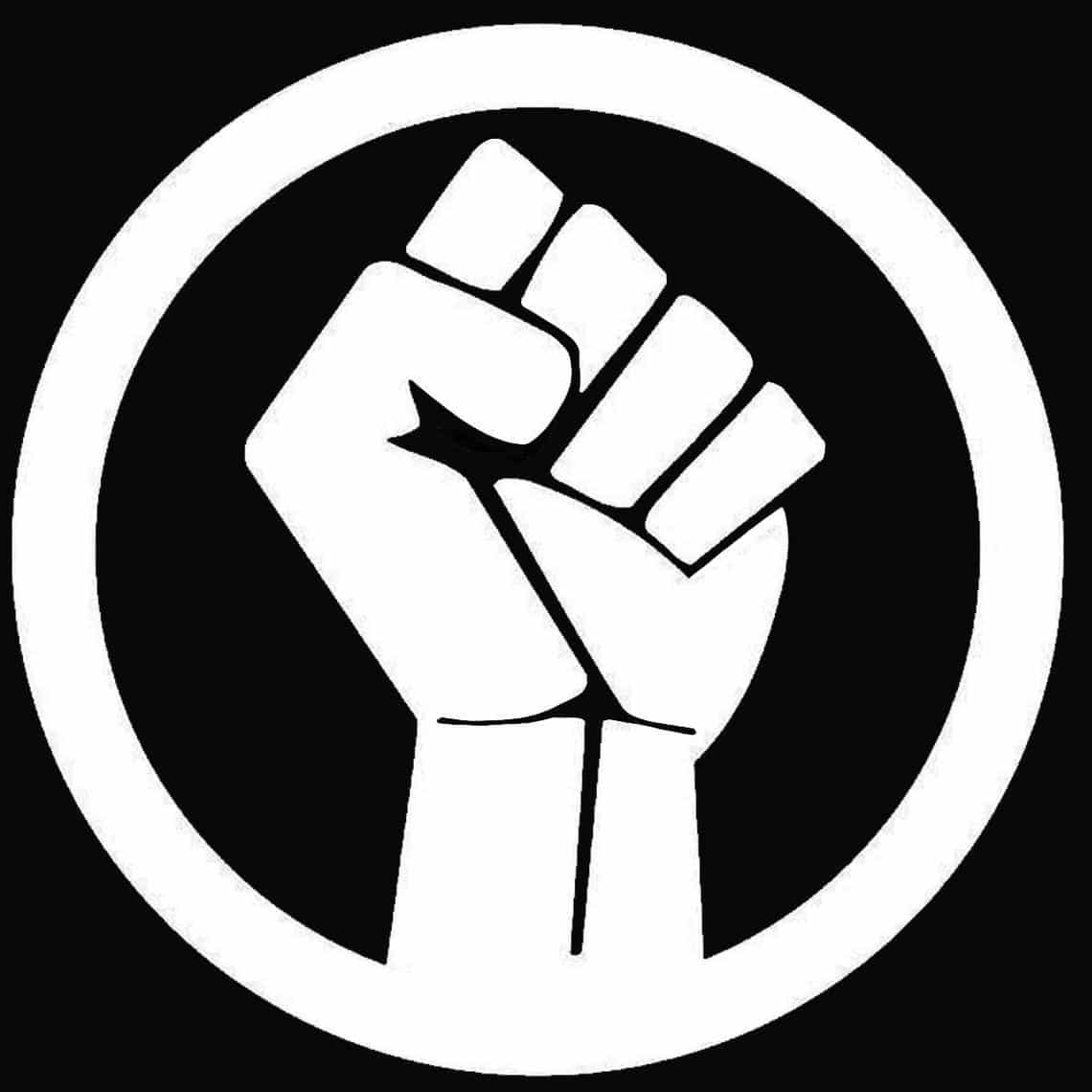Counter Productive

I don’t think it is an exaggeration to say that every day, I talk to a client who tells me, in one way or another, that a good chunk of their unhappiness is due to the stress that they feel due to the pressure of the world to do more than they are currently doing. It seems that there is a universal sentiment that whatever you are doing, it is just not enough. You could be making more money, you should be spending more time with the kids, you need to learn more, you have to figure it out, and of course, every object needs to be replaced with a better one.
The push for more is almost like an illness, a parasitic idea in the fabric of Western, or perhaps more accurately – capitalist – culture. It fastens us into a mode of constant motion, and prevents us from ever getting true rest, from even letting ourselves truly stop. Even the idea of stopping is often incredulous to us. Even our rest is motion.
The push to have more is not just a materialistic problem, but a psychological one. Recently, author Jenny Odell has brilliantly deconstructed this issue in her 2019 book, How to Do Nothing. She critiques the modern “attention economy” where nothing is valued unless it produces something measurable (and therefore, likely, sellable). Many others have spoken about the materialist drive for more, which is old news, but I suspect it is more subtle problem. We live in a culture where we work hard and have, for the most part, incredibly abundant lives. But we are taught by accident, and learn without direction. Our families, schools and jobs show us that the way to live is by accruing wealth and guaranteeing security. But even those of us who are not so fixed on getting bigger homes still get lost in variations on the constant push forward – the push to succeed, the push to accomplish, the push to become someone, even the push to attain enlightenment.
On one hand, we can all see the detrimental nature of this pressure in our lives as it fixes us in a state of stress and dissatisfaction. That is easy enough to notice if you want to look. However, I have also noticed through working with many people on this subject, that part of us doesn’t want to let go of this pressure. We believe it is good. We believe it is necessary. We are afraid of what might happen if we let it go. We are convinced that without it, we would become something awful – from starving and homeless, to failures and disappointments. We are scared of stopping.
But I suspect that this is an enormous error, and simply an extension of the core mistake of human nature, which is the belief that we are not already whole. The belief that we are incomplete, that we are separate, which in religious terms is initiated by the observance of this versus that, good and bad, less and more, which we project onto the world – this original sin so to speak – is not something that occurred once a long time ago, and against which we must somehow redeem ourselves. It is occurring in every moment, in our judgments of ourselves and the world. In fact, it is occurring every moment in the very idea that there is a difference between ourselves and the world. This is the judgement which causes us to leave paradise. And it can be undone in any moment. All it takes is for us to see things as they really are. Whole. Unified. Enough. That is heaven.
But I am getting more metaphysical than is necessary. The point is that we are so utterly convinced that we need to work harder and achieve more and be someone else than we already are, that it causes us to remain perpetually in motion, never allowing ourselves to truly rest. This is why the practice of mindfulness is so essential for us all. It is the practice of stopping. It is, in essence, the answering of the question, “what would it be like to do absolutely nothing?” What would it be like to just be, and to only be – with nothing else? Ah, here we are again – “To be or not to be”. Amazing how that really is always the question.
In mindfulness we are practicing non-doing. We are not actively moving our bodies. We are not actively trying to experience something other than what we are currently experiencing. We are not even putting effort in trying to make the mind or thoughts focus on, or go, any way over any other way. If you think that this is what mindfulness is about, I’m afraid you have been taught something else other than mindfulness. Every relaxation technique, every self-reflection is not a practice of mindfulness. I remind people daily that the greater part of mindfulness is the practice of just figuring out what it really means – not theoretically by reading about it, but experientially. I thought I had understood mindfulness for literally years until things really settled in for me, and I realized that though my practice was consistent, I really didn’t get it. And now I wonder if in ten years, I will feel the same way about my understanding right now. Frankly that would be wonderful.
I am trying to emphasize here the importance of a practice of stopping. Pretty much every one of us lives a life of go – go – go, and do- do – do. And as Neale Donald Walsh once said on this topic, that if you live your life like this, always doing, you just end up with a big pile of do-do. Well even if it isn’t a good joke, it at least makes the point – we are lost in doing. We have lost ourselves in a constant motion, in the hamster wheel. And we are exhausted.
I am not saying that there are not things to do in this world. Obviously there are. But i have observed also that we can do these things without the push, without the compulsive drive to it, and then we can actually do all the things that we need to, with greater presence, clarity, joy, and purpose. And it is surprising how little is sufficient. Moments of true joy are not usually the elaborate ones. We cling to the idea that we have to push ourselves, or else. But I often like to point out to people that we can come from two different places in our motivation. We can come from a place of fear, or a place of love.
The traditional mode of motivation, that we tend to learn from our parents and schools, is fear based. It says that we are not enough, and so we must strive to be more and use this to drive us. This works really, really well to make us get jobs, build homes and empires etc., however it also fails horrifically in giving us what we really want, which is happiness.
For some reason, we fail to see that there is another universe from which we can be motivated – and that is one of wholeness, joy, and love. Do you notice that joy is not static? Do you notice that love moves? If you look honestly in yourself, you can notice that if right now, you knew that you were whole – needing nothing – and in a place or point of perfect love – that it might draw you into action.
That action may simply be to make yourself a good breakfast, and it may be to call your mother, and it may be to create a t-shirt company. But when it comes from a place of wholeness, it is motion that lacks pressure, since there is no threat that if it doesn’t come to fruition, then it will prove yet again that you are not enough.
Have you noticed that the great examples of love and peace in this world are people that are not just sitting in a cave all day? We have lots of examples of individuals who are anchored in love and who work with great energy in the world. We need to look to them, not as freaks or outliers, but as possibilities, and mirrors.
When we work and move from a place of sufficiency, from a place of knowing that we are essentially enough, everything that we do is imbued with that quality. We can even work quickly from this space, with an ease that can be present even in discipline. Our actions become effortless. They simply arise from the moment, from what the day sprouts out of us.
As the Tao Te Ching says, “When nothing is done, nothing is left undone”.
The world doesn’t need more emphasis on productivity. Look around. If anything, we produce too much. Am I saying that we should stop working towards solutions in climate change, or enabling human rights, or producing good food? Not at all. I’m saying that even these actions are going to be more effective when we come from a saner place with it all. We don’t need anger and fear to move us to do the sane and proper thing. We just need awareness and attunement to reality. We don’t need to focus more on the quantity in our lives, we need to focus on the quality with which we do the things we are doing. If we can collectively make that kind of shift, then we could find solutions to all the world’s big problems.
The X and Y of it all
We could imagine that life is on two axes, an x and a y. The horizontal axis is one of Quantity. We have done incredibly well as a species, creating material wealth and comfort, inventing dishwashers and cars and individually, working hard to get jobs and pay mortgages. But we have ignored the y axis – the dimension of Quality. No matter how much security you have in your life – whether you have the career, relationship, house or whatever it is that you think you need before you can be happy – I call on you now to shift your attention more and more to how you are doing the things you are doing, and to seeing that it not the accumulation of wealth, nor the security you think you would derive from conditions, that will bring you true happiness. Objects and conditions will always fail to bring us the peace that we want – simply because none of them could ever be lasting.

All of our wealth and worldly security is transient. None of it is perfectly secure. This is not a tragedy, but a blessing. To see this clearly is to release our belief that any of it could truly work to complete us. When we let go of that illusion, we are free to find happiness and security where it already is: in the simple experience of our own presence.
When we start to put our attention in our own awareness, in the present moment, we start to build on the y axis of our lives. When we focus on the quality with which we do the things we are already doing, it enriches our lives and lets us live in a place of satisfaction. We do what needs doing. And we are happy to not do the things that don’t need doing. Without the need to be more than we already are, we find space for what matters. Life doesn’t become a means to an end, but an end in itself.
If you test this, you may see that you don’t need pressure and stress, you don’t need to accomplish what you think you had to, in order to be ok, be enough, or feel good. And conversely, that when you feel whole and peaceful, that without that awful pressure, you will still do the things you need, you can still work and accomplish what you need to – it will just be lighter and easier.
Take a pause. Take a few deep breaths. Notice how full your life already is. How supported. How ok you are in this nanosecond. Can you notice that? It will always, always be true for you, in any moment you ever bother to check.
So just check more often. Let go of the reaching for what is next. The whole world is waiting for you.






